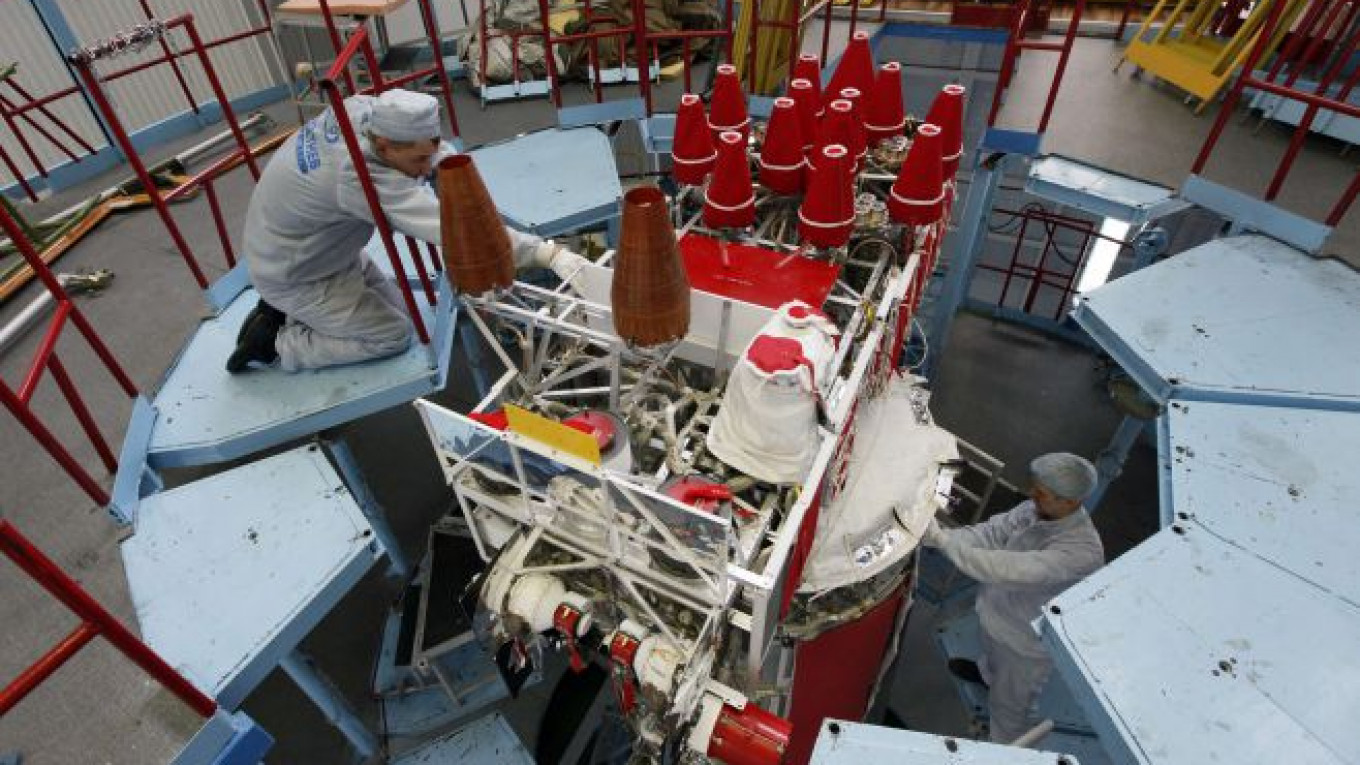Russia plans to make its Glonass satellite navigation system more competitive by constructing 50 new ground stations in 36 countries, a senior Kremlin official said Wednesday.
The Glonass system was launched to provide Russia with its own navigation data for military and civilian applications, and to secure a cut of the commercial benefits currently enjoyed by the U.S.'s Global Positioning System, or GPS.

Sergei Ivanov speaking on Glonass
GPS can currently deliver navigation data with an accuracy of 1.8 meters, while Glonass is accurate to 2.9 meters, and Russia is keen to make up ground, Kremlin chief of staff Sergei Ivanov said.
"GPS is still ahead of us, but the gap continues to shrink. We will catch up," Ivanov said at the International Satellite Navigation Forum in Moscow, Interfax reported.
"To do this, we will create ground stations abroad. In the long term, or ideally, we would like to have about 50 stations in 36 countries," he added.
At present, Glonass only has foreign ground stations in Antarctica and Brazil and Ivanov said that building more of them will greatly expand the penetration of Glonass on global markets.
A request by Russia's Federal Space Agency to place ground stations in the U.S. was opposed by the CIA and the Department of Defense, the chief concern being that they could be used for spying on U.S. soil, .
The U.S. operates GPS ground stations throughout the world, but not in Russia.
Russia has been developing its own satellite navigation system since 1976, completing the first stage of the Glonass system in 1995, but due to a lack of funding it was not brought online.
In 2001 President Vladimir Putin said Glonass was a project of national importance and called for efforts to be redoubled to refurbish and complete the system.
See also:
Contact the author at [email protected]
A Message from The Moscow Times:
Dear readers,
We are facing unprecedented challenges. Russia's Prosecutor General's Office has designated The Moscow Times as an "undesirable" organization, criminalizing our work and putting our staff at risk of prosecution. This follows our earlier unjust labeling as a "foreign agent."
These actions are direct attempts to silence independent journalism in Russia. The authorities claim our work "discredits the decisions of the Russian leadership." We see things differently: we strive to provide accurate, unbiased reporting on Russia.
We, the journalists of The Moscow Times, refuse to be silenced. But to continue our work, we need your help.
Your support, no matter how small, makes a world of difference. If you can, please support us monthly starting from just $2. It's quick to set up, and every contribution makes a significant impact.
By supporting The Moscow Times, you're defending open, independent journalism in the face of repression. Thank you for standing with us.
Remind me later.






